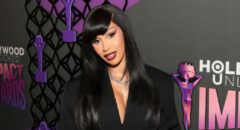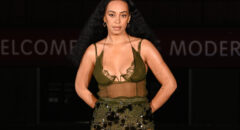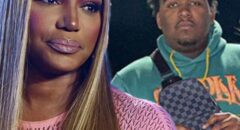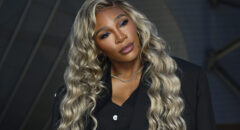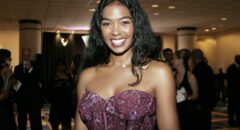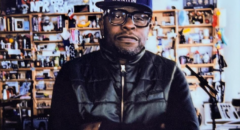 Who could forget Dave Chappelle? The breakthrough comedian from rural Ohio who first made a name for himself in the film Robinhood: Men In Tights but then had a string of successful movies including the now-classic, Half Baked. But it wasn't until he landed his own on the then-fledgling network, Comedy Central, that Dave and the hilarious Chappelle's Show took off. It became the highest-rated, most-watched show in Comedy Central history and the DVD of the show became the highest-selling TV show DVD ever.
Who could forget Dave Chappelle? The breakthrough comedian from rural Ohio who first made a name for himself in the film Robinhood: Men In Tights but then had a string of successful movies including the now-classic, Half Baked. But it wasn't until he landed his own on the then-fledgling network, Comedy Central, that Dave and the hilarious Chappelle's Show took off. It became the highest-rated, most-watched show in Comedy Central history and the DVD of the show became the highest-selling TV show DVD ever.
But when Dave, on the impending Season 3 of the show decided to walk away from his contract and $50 million dollars, many people questioned his mental health. But in his interview with Oprah, he explained how he walked away from becoming more and more "socially irresponsible" and wanted to bring back the fun of comedy without all the stress.

Over 10 years later, Dave is back in stand up and doing well! And not just any standup: he recorded two (only two) live shows for Netflix that paid him $60 Million--$10 Million more than he would have gotten for his entire season 3 of Comedy Central. He also has a lot to say about what's happening in our world right now--specifically with race and the entertainment business.
On one of his specials that lead up to the now semi-controversial Netflix, The Closer, which wasn't really a comedy set at all, "846" he goes all in on race relations, police brutality and changes America needs to make. The set was filmed on June 6th, twelve days after the police officer Derek Chauvin kneeled on the neck of George Floyd, Jr--the murder that seemed to wake up a lot of America--and the rest of the world for that matter. Chauvin knelt on the Floyd's neck for a horrible eight minutes and forty-six seconds, the lethal timestamp from which the special takes its name. (It’s ten days after Tallahassee police fatally shot Tony McDade, a trans man.) Chauvin’s murder of Floyd is the central matter of the performance, which Chappelle addresses both his grief, anger, disgust and need for change: “I don’t want to see this because I can’t unsee it” he says. “Every institution that we trust lies to us...I’m tired of explaining.”
On Race Relations
"This is a very surprisingly emotionally charged time,” he said to the AP, “so people like me, I think, are very relevant and necessary in sorting through all this information and emotional content. And when we are at our best, hopefully we are doing a great service to many people."
"The biggest enemy of an artist is apathy … A kid gets killed by the police and I buy a T-shirt and before I can wear that one, there's another kid (killed) and I'm running out of closet space."
On His Funniest Moments
On Not Being Seen As Much
"I’ve been out here doing comedy the whole time. But if certain people don’t see you, it’s not that you don’t exist, it’s just that they haven’t seen you. Sometimes I’ll do shit and I’ll be like, 'Oh, that’s so great.' And I’ll think, 'I would love to share this.' And then I can talk myself out of it for any number of reasons."
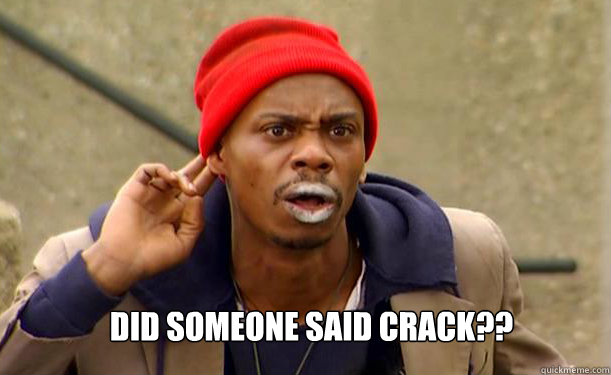
On What Life Is Like Now
"I have a very good life, a high quality of life. I have both money and time. No one has that. My kids are older now, so when I make decisions within the public eye, it affects more than just me. This year I’ve been way more generous with my time, as far as what I’m willing to share. And it’s been great. People have been very supportive. They’ve always been supportive. But it was good to reaffirm that I actually did have a rapport with...
... the audience and people are still interested. Like when my agent tells me I sold out shows in Lincoln, Nebraska, I don’t take that for granted."

On Kanye West & Celebrity-ism
"I do see a common denominator in the sense that the issue of privacy in general is everyone’s issue. And his version of that is very extreme. I’m a celebrity in some people’s eyes, but not to the extent [Kanye] is. I saw on Yahoo that his wife got tackled in Paris. Like, just crazy shit. I think that he’s right in the sense that scrutiny in and of itself is oppressive. If someone sits there and stares at you while you eat, you won’t even eat the way you normally do, because it’ll make you so uncomfortable. If I look at my dog when he’s eating, he will look at me like, "Dave, I will bite you. What are you looking at? I’m trying to eat." It’s something that dehumanizes a person, being on display like that. So is it like the civil rights movement? Not quite. The metrics are a little wrong to make that comparison. But it is a civil rights issue, in a sense. Because how is he supposed to live his life? It’s like someone putting their ear to your butt and being like, "Ew, you farted!" Stop listening to my asshole!"
On What's Next For Dave
"I have a show-business bucket list. There’s just certain things that every entertainer always dreamed of doing. When I was 19, I used to walk up Sixth Avenue and look at the marquee of Radio City. I’d see the lines outside. I’d be like, "Man, I just want to... Radio City!" So then, last year, when I started going on the road, it was just because I wanted to be on the road, at first. There’s something cathartic about touring—it feels good to just engage people that way. But then, as it was progressing, I was like, "Well, this should all go somewhere. Where am I going with this?" It just so happened the venue was open during the same time frame I was willing to play. The venue opened up for an astounding ten days. And I said, "Well, can we do all ten? You know, can I even do that business? I haven’t played New York in so long." I didn’t want to pass up on the opportunity."

"I need time to think. I need to have experiences. I have to live in order to get onstage. When I’m sitting there staring into space, that’s the heavy lifting. I’m like everybody: Sometimes I’m wildly optimistic; sometimes I feel doom and gloom. We all just keep moving."



